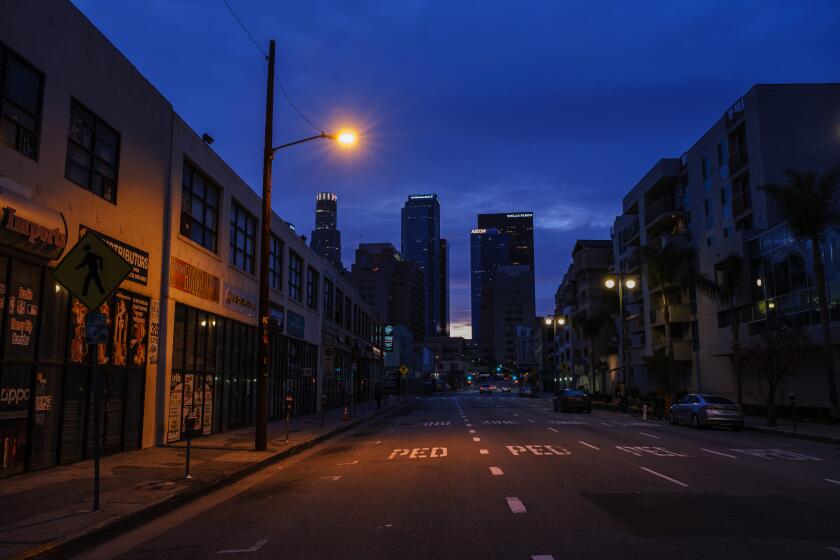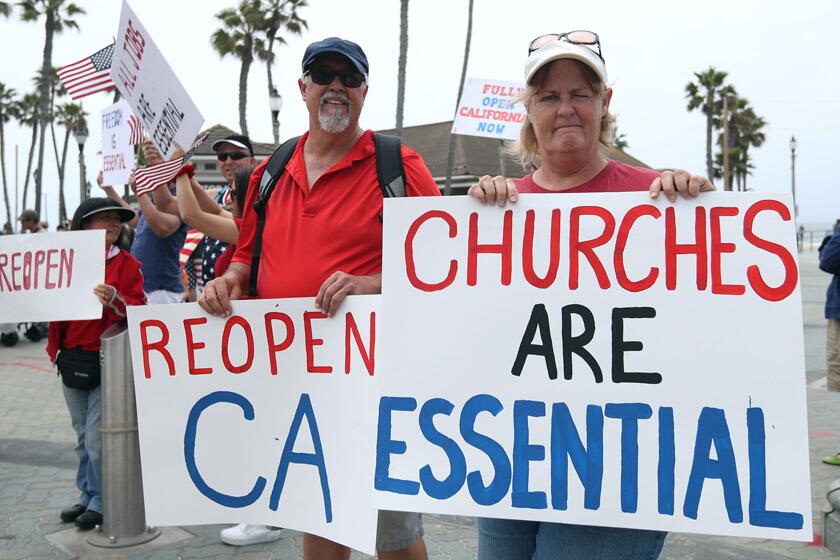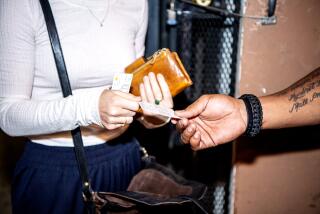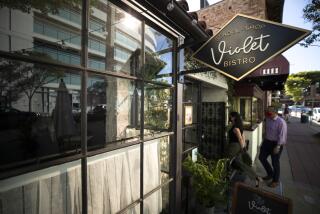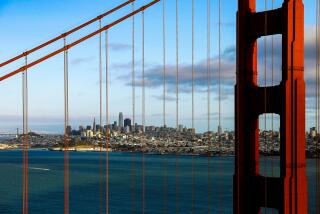Pancakes, face masks, temperature checks: Ventura County restaurants reopen to customers, concerns
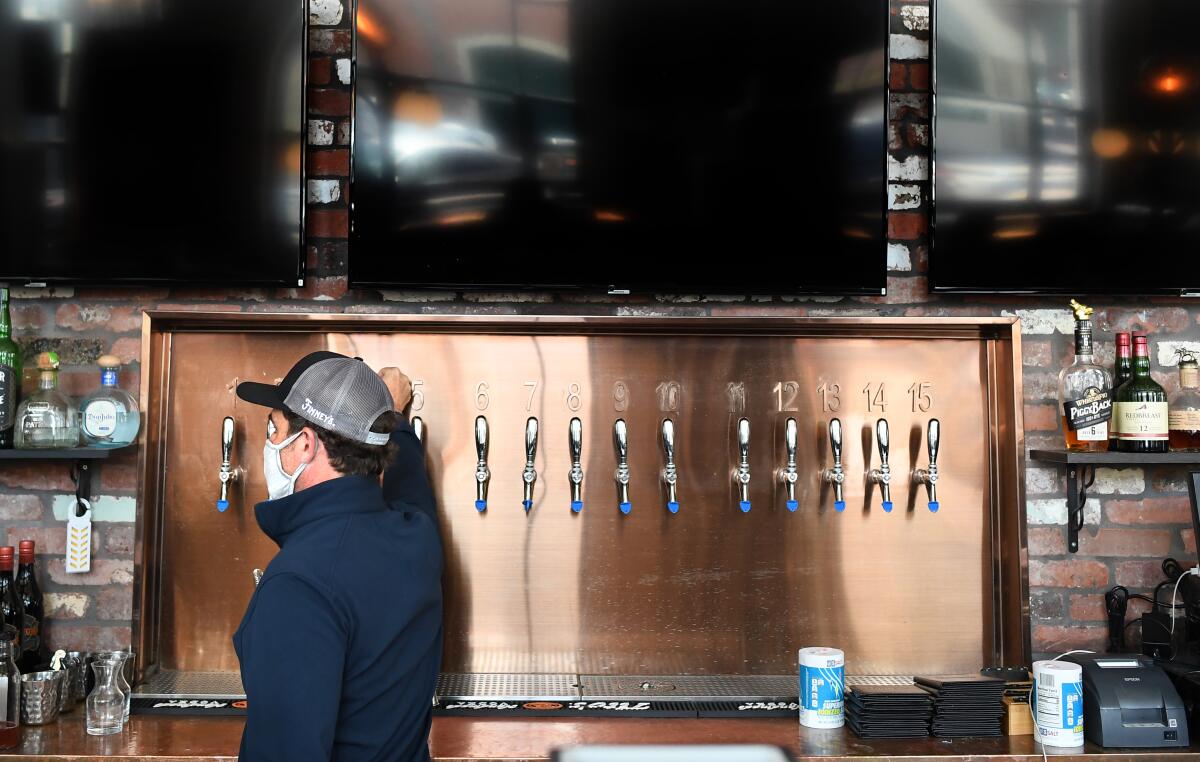
The door was open although the restaurant was technically closed late Saturday morning when the first group of curious customers filed into Nature’s Grill, Thomas Larsen’s storefront cafe.
“We open at 11,” Larsen whispered with a shrug, a cloth face covering hiding a smile as he glanced at his watch. It read 10:55.
No one, least of all Larsen, wanted to wait another five minutes for the restaurant to open, not when they’ve already waited more than two months.
On Thursday, state health officials gave Ventura County restaurants permission to allow seated dining, part of an accelerated Stage 2 path to reopening in more than 30 counties shut down by Gov. Gavin Newsom on March 17 in an effort to slow the spread of the coronavirus.
“Business isn’t going to come rushing back,” said Larsen, whose Main Street storefront sits along a trendy five-block stretch of bars, boutiques and restaurants in downtown Ventura, a half-mile from the beach. “It’s been a struggle. But I think everyone’s navigating it the best they can.”
Larsen said the shutdown crushed his business, forcing him to lay off all but a handful of his 16 employees and dip into his personal savings to avoid closing completely. To reopen, restaurants must agree to county rules requiring face coverings and temperature screening for all employees, ample social distancing for customers and the thorough cleaning of menus, tabletops and other frequently touched objects.
Theories abound as to why L.A. County has the bulk of the state’s confirmed coronavirus cases, but a clear explanation has been elusive.
And while Larsen may fudge the rules when it comes to opening time, he’s sticking to the ones that will keep those doors open. That means closing every other booth in his restaurant, moving some of the maple chairs and tables outside and serving food in disposable containers.
“I’m going to overdo it,” he said. “I’d rather be overcautious right now. The whole pandemic is something you need to worry about. Just packing people into restaurants at this point isn’t smart.”
For Larsen, the fear of the novel coronavirus isn’t theoretical. His sister, a nurse in Santa Barbara, was tested three weeks ago after coming into contact with a COVID-19 patient; the hours waiting for the results were long.
“It’s absolutely a real thing,” Larsen said. “It’s something that everyone needs to take seriously. People are going to have to decide for themselves when it’s safe to come out and dine. Some are going to take their time.”
Halfway up the street, Linda Sims of Granada Hills tucked into a booth across from her husband, Anson, in the back of the Busy Bee Cafe. She had already made her decision — she was going with the pancakes.
“We come here every Fourth of July. And this is where we always have breakfast,” she said of the 1950s-style diner, which reopened Thursday. “When we read that the Bee was open, the first thing we said was ‘we’re coming.’”
The 9th Circuit Court of Appeals upheld California Gov. Gavin Newsom’s ban on in-person church services due to the coronavirus crisis.
The Sims, who wore face masks while waiting on the sidewalk for a table, said they know there’s a risk in reopening now, but it has to happen some time.
“We’re at the vulnerable age,” Linda Sims said. “But you know what? You’ve got to dip your toe [in]. And then you’ve got to dip your foot. And then you’ve got to go into the water with your leg.
“If they’re willing to open up knowing that it’s safe — they’re not going to kill us — we need to patronize them. I’m going batty by being in the house.”
Two doors down Greg Finefrock, the owner of Finney’s Crafthouse, was welcoming back 50 former employees at a staff meeting before the restaurant’s reopening next Thursday. The meeting felt more like the first day of school, with old friends all in facial coverings, greeting one another with elbow taps or fist bumps.
Finefrock said he wanted a week to familiarize himself and his staff with the health department guidelines — as well as with some additional guidelines of his own, including one that will require both patrons and workers to submit to temperature checks.
“We don’t want to open while we’re unprepared,” he said. “So we felt it was in our best interest to wait the extra seven days.”
Sixty-two seats have already been removed to provide for social distancing at the restaurant, but Finefrock hopes to make up some of that lost capacity when parts of Main Street close to traffic next month, allowing businesses to expand onto the sidewalk as part of a city effort to help shops and restaurants hurt by COVID-19 restrictions.
“There’s so much pent-up demand for people to get out of the house,” he said. “What I believe they want is some semblance of normalcy. They don’t want to come into a restaurant and feel like they’re in a hospital.
“So it’s a balancing act on how we can make them feel safe but also feel normal while they’re dining. That’s our goal.”
More to Read
Sign up for Essential California
The most important California stories and recommendations in your inbox every morning.
You may occasionally receive promotional content from the Los Angeles Times.

